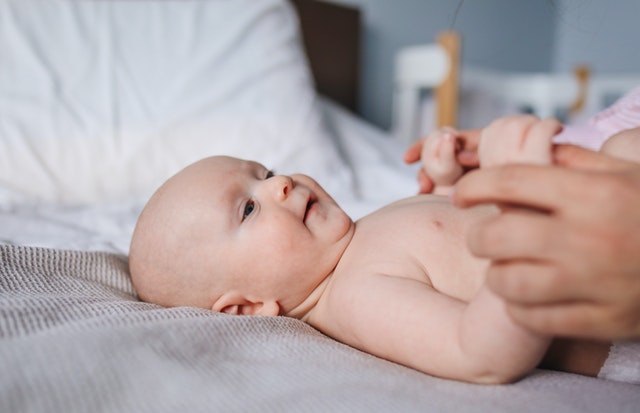Appointment Request
You can use this form to request an appointment.
Once received, we will check the form details and confirm appointment times with you.
We cannot guarantee an appointment without confirmation.
New Patient Registration
If you would like to register as a patient with YourGP, please fill in your details below and one of our team will be in touch.
Treating your child’s eczema

Eczema is a fairly common skin condition amongst children – in fact, it is thought to affect around one in five. However, that’s probably little consolation to a parent whose child is miserable because of their dry, itchy, inflamed, and cracked skin.
When eczema flare ups are particularly bad, they can cause major irritation for the child, upsetting their sleep, and therefore potentially disrupting the sleep of the whole family. So it’s important to seek help from an expert – such as YourGP’s resident Dermatology Nurse Specialist, Polly Buchanan – who can work with you to find the right solution for your child. Click here to find out more about the services that Polly offers.
What triggers eczema?
Eczema in children can vary widely in severity, and although there may be a genetic link, it can be triggered by a wide range of things including:
- Soap
- Washing detergent
- Fragrances such as perfumes and air fresheners
- Pollen
- Dust mites
- Certain foods – most commonly cow’s milk
- Wool or synthetic fabrics
- Hard water
- Heat
- Sweat
- Hormones
- Stress
What are the symptoms of eczema?
A red, scaly rash that itches, feels dry and flakes. Although these rashes can appear anywhere, they typically appear on the hands, insides of elbows, backs of knees, face, and scalp.
How serious is eczema in children?
Eczema itself is not serious if it is carefully treated. However, if left untreated there is a risk of infection which then has the potential to lead to more serious complications. For this reason, it is always best to seek the help of a medical professional as soon as symptoms appear.
Will my child always have eczema?
Eczema usually develops within a child’s first year. For some, it can settle down by the time they reach the age of around 6, however for many others it can continue into adult life. During this time, most will experience periods where the symptoms are settled and periods where they flare up.
How is it treated?
Sadly there is no overnight cure for eczema flare ups. Every child is unique and therefore every child will react differently to various treatments. The key is to be consistent and patient – it can sometimes take weeks of using a particular cream, for example, for things to settle down.
There are a range of topical corticosteroids and emollients available, and your doctor will talk you through the right option for your child.
How to apply the treatments
It is important to bathe the affected areas regularly. Ensure the temperature is lukewarm and use a gentle, unscented, hypoallergenic cleanser. Avoid scrubbing any affected areas and, when drying, lightly pat the skin, then apply a prescribed topical medicine. Next, apply the emollient. The great thing about emollients is that there is no limit to how many times a day you can apply it – keep slathering it on to reduce the itchy sensation when needed.
What else can I do to help my child?
- Try and reduce the damage caused by scratching by distracting your child and showing them how to pat or rub their skin, rather than scratching with their nails which could potentially break the skin and lead to infection.
- Keep their nails trimmed.
- Some find it helpful to wear mittens when sleeping as many experience a worsening of symptoms at night.
- Opt for clothes that are 100% cotton which are softer on the skin.
- Use a fragrance-free washing detergent and avoid fabric softeners.
- Encourage your child to drink plenty of water to help keep the skin hydrated.
- Avoid overheating.
When to call the doctor
Speak to your doctor if the treatment does not appear to be reducing the symptoms. You should also call if you notice a sudden change in symptoms such as blisters or oozing skin with scabs, crusts, or sores and a high temperature, as this could indicate an infection.
For more help and guidance from the healthcare experts at YourGP and to find a treatment that will work for your child, email our reception team at reception@your.gp or call us on 0131 225 5656 to book an appointment.
I was in significant amount of pain and was seen very quickly by Dr McFarlane. He was able to immediately identify the problem. He carried out the minor surgery immediately, with great skill. I would not hesitate in recommending him as an excellent GP.
